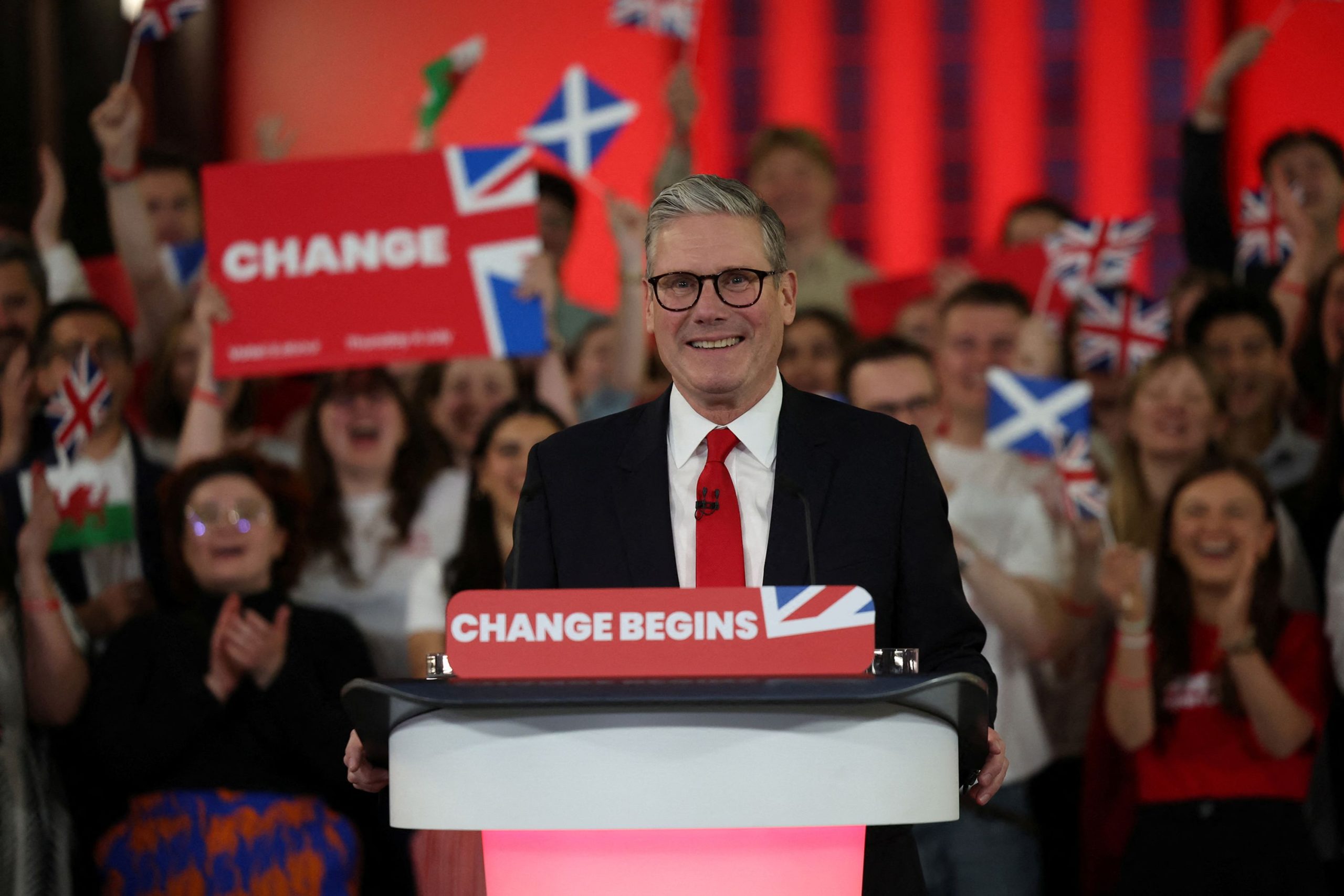Labour’s decisive victory in the recent general election has been hailed as a mandate for transforming the UK into a green and low-carbon economy. Campaigners and experts assert that the Conservative Party’s reversals on environmental policies, viewed by Greenpeace as unpopular as “a root canal,” contributed significantly to their historic electoral defeat.
Concurrently, the Green Party achieved its strongest-ever performance, quadrupling its parliamentary representation.
The scale of Labour’s win has provided Keir Starmer with a robust mandate to enact ambitious measures on net zero emissions and biodiversity conservation, according to analysts. Ed Matthew from the E3G thinktank emphasized the economic repercussions of the UK’s oil and gas dependence, linking it to the cost of living crisis exacerbated by delayed clean energy policies.
He underscored Starmer’s obligation to fulfill Labour’s manifesto commitment to propel the UK into a “clean energy superpower.”

Keir Starmer
Mike Childs of Friends of the Earth emphasized the urgency of environmental action, pointing to recent extreme weather events as evidence of the imperative for immediate government intervention. Edward Davey from the World Resources Institute highlighted the opportunity for the UK to regain global leadership in climate and development, urging the new government to demonstrate exemplary environmental stewardship.
The tasks ahead for Labour encompass a broad agenda, including reforms to enable onshore wind and solar energy expansion, enhanced public transport, and measures to facilitate a just transition for workers in fossil fuel industries. Achieving the legally binding net zero greenhouse gas emissions target by 2050 necessitates a comprehensive strategy, as outlined by Bob Ward of the Grantham Institute.
Greenpeace’s Areeba Hamid urged Starmer not to overlook opportunities for economic revitalization through renewable energy and green job creation, cautioning against complacency despite Labour’s electoral success. She noted that some votes were lost to parties like the Greens and Liberal Democrats, who campaigned on more aggressive climate and tax reform agendas.
The election outcome underscores public sentiment against political vacillation on environmental issues, according to Craig Bennett of the Wildlife Trusts. He emphasized that attempts to politicize climate and nature crises as cultural issues did not resonate with voters. Despite Reform UK’s anti-net zero stance, analyst Ed Matthew argued that their support primarily hinges on immigration policy rather than climate denial.
Labour’s electoral triumph has set the stage for a transformative shift towards sustainability and climate leadership in the UK. The mandate is clear: urgent action is required to address the climate emergency and foster a resilient, green economy that benefits all sectors of society.
